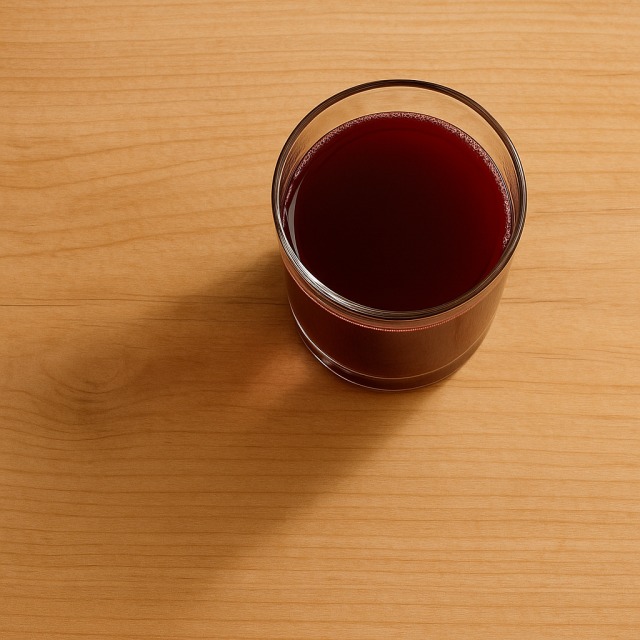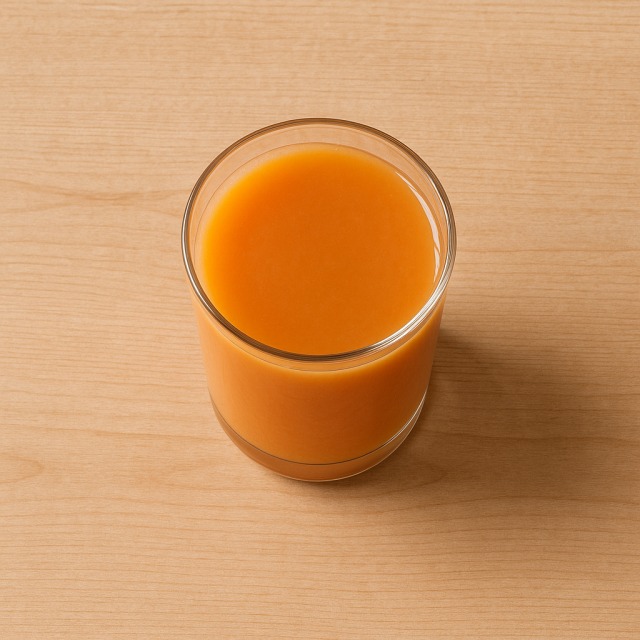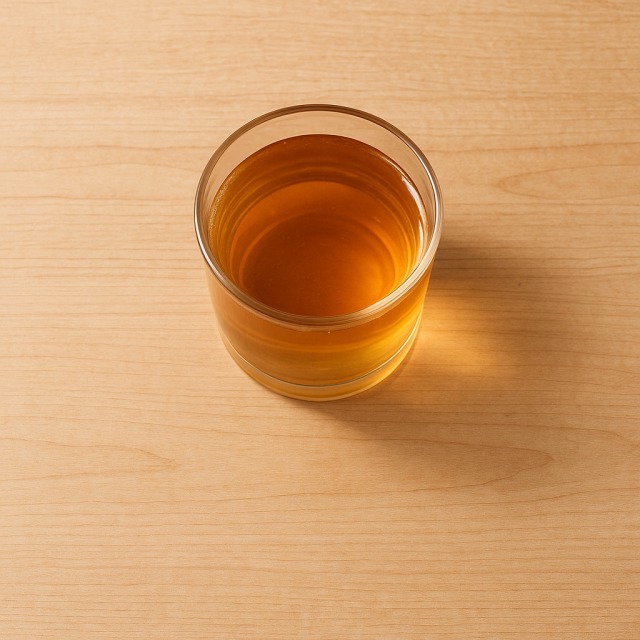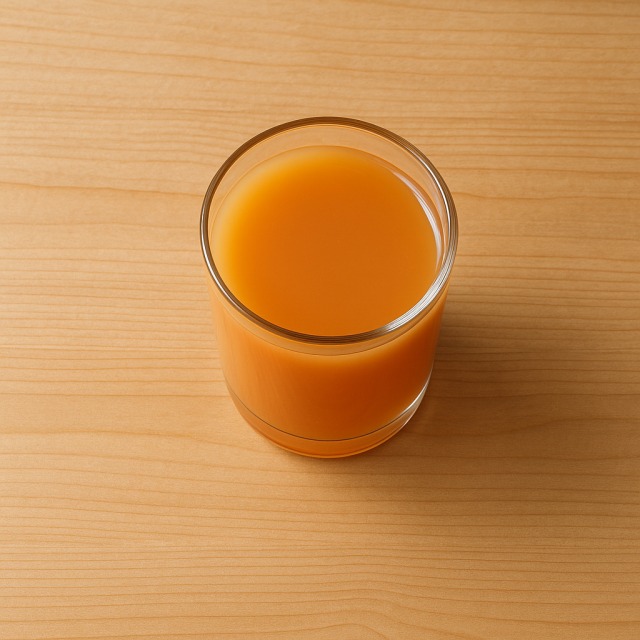Calorie Chart / Beverages / Juice - Orange
How Many Calories Are in Orange juice?
Calculation of the nutritional value & Recommended Dietary Intake of orange juice
For ml and a calorie requirement of kcal
| Calories 100 kcal | Proteins 1.8 g | Lipids 0 g | Carbohydrates 23 g |
| 5% | 2% | 0% | 8% |
Health benefits of orange juice

Orange juice - 100ml
Calories 40 kcal
Proteins 0.7 g
Lipids 0 g
Carbohydrates 9.3 g
At 40 kcal per 100 g, orange juice is considered a moderate-calorie drink; these calories mainly come from natural fruit sugars. The beverage is an excellent source of vitamin C, provides folate, small amounts of thiamine and potassium, and is more hydrating than many higher-calorie alternatives. Its flavonoid hesperidin is studied for cardiovascular benefits, although the effect remains "supposed" until larger clinical trials confirm it. Regular intake, therefore, supplies antioxidants and minerals without a large calorie load, helping you stay within daily calories while meeting micronutrient goals.
Historically, orange trees reached Europe in the 15th century, and commercial pasteurized juice was first sold in Florida in 1915. Compared with apple juice or grape juice, orange juice offers more vitamin C per calorie, making it a popular winter remedy. During World War II, frozen concentrate was developed to give soldiers vitamins while controlling transport weight and calories. All these facts underline why nutritionists still recommend this moderate-calorie classic today.
Tips for incorporating orange juice into a balanced diet
Because orange juice supplies fast carbohydrates but only moderate calories, it fits neatly into a balanced breakfast: serve a 150 ml glass (≈60 calories) with a bowl of muesli and a few crushed almonds to add proteins and healthy fats without exceeding calorie limits. Athletes can blend it with one raw egg white for a light post-workout shake that boosts recovery while keeping calories reasonable.
At lunch, replace vinegar with a splash of orange juice in a vinaigrette for a spinach and chicken breast salad: you cut dressing calories, add citrus aroma, and improve iron absorption thanks to vitamin C. The same juice works in marinades or as a reduction glaze for grilled fish, providing depth of flavor with almost no extra calories.
Frequently Asked Questions
- How many calories are in orange juice?
- Orange juice provides 40 kcal per 100 g.
- Is orange juice lower in calories than soda?
- Yes. A typical soda delivers around 45–50 kcal per 100 g, whereas orange juice sits at 40 kcal, so you consume fewer calories while gaining vitamins.
- How many calories are in a 200 ml glass of orange juice?
- A 200 ml serving weighs roughly 200 g and therefore contains about 80 calories (double the 40 calories per 100 g reference).
- Does squeezing oranges at home change the calories?
- Freshly squeezed juice keeps virtually the same calories as packaged versions; differences of only 2–3 kcal per 100 g arise from fruit variety and ripeness.
- Can I drink orange juice during a low-calorie diet?
- Yes, in moderate portions. Allocate its 40 calories per 100 g within your daily budget and pair it with fiber-rich foods such as cucumber sticks or a handful of strawberry halves to stay full without excess calories.
Similar foods
Information provided by Calorie Menu may contain inaccuracies or errors. It cannot, under any circumstances, substitute medical advice or medication.










